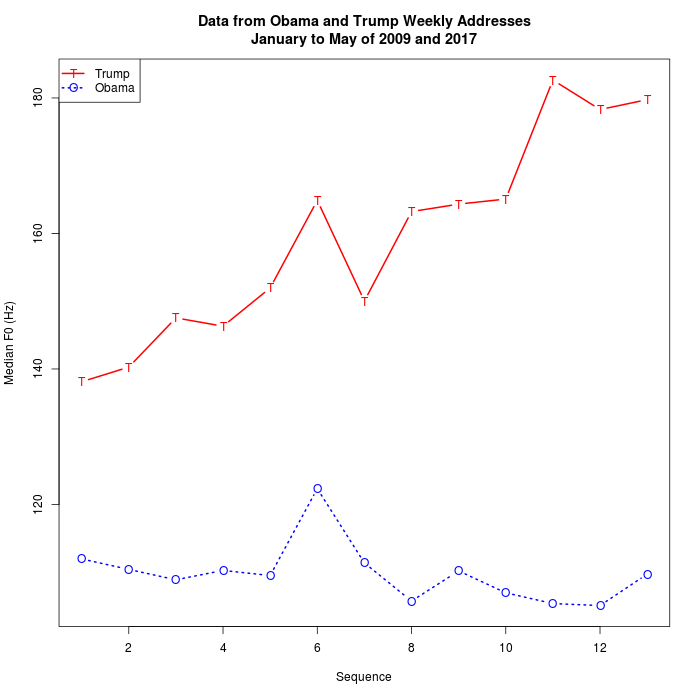Trends in presidential pitch II
In Trends in presidential pitch (5/19/2017), I observed that the median fundamental frequency (= "pitch") of President Trump's weekly addresses has increased steadily since January, by about 30%. As a point of comparison, I did the same calculation for President Obama's first few months of weekly addresses, from 1/24/2009 to 5/23/2009, in comparison to Trump's weekly addresses from 1/28/2017 to 5/19/2017:
[I've omitted Trump's three addresses from 3/3/2017, 3/25/2017, and 3/31/2017, because of the differences in recording context and production style explained in the earlier post. Because Obama seems not to have recorded any weekly addresses in February of 2009, the time span of the 13 plotted weekly addresses from the two presidencies is very nearly the same. ]
Read the rest of this entry »


